Coastal Science Symposium
The Coastal Science Symposium brings students, faculty, and community partners together to explore coastal and marine science research applications to society.
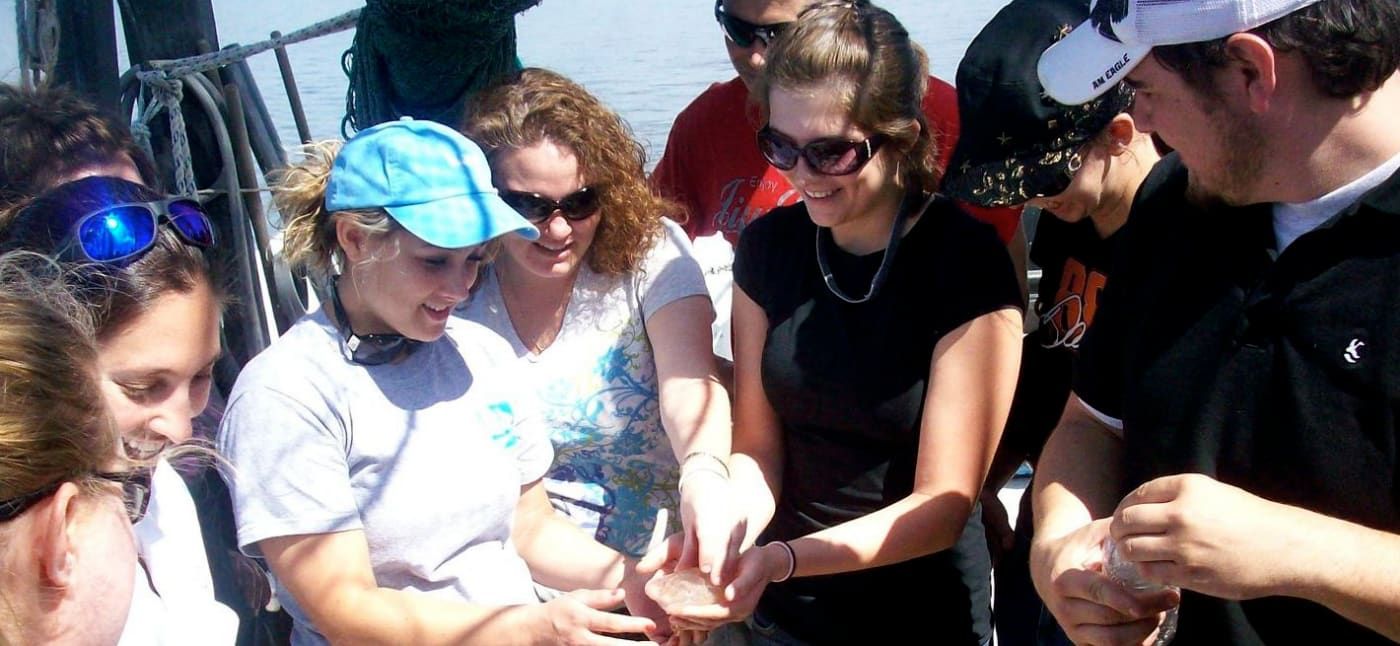
The School of Arts and Sciences is a student-centered, socially-engaged school with an outstanding faculty focused on student success. We seek to educate students through innovative teaching and student engagement, emphasizing interdisciplinary education, global awareness, and service-learning. Our goal is to graduate students who are highly-trained, engaged, and socially-responsible citizens empowered to build their futures in the state of Georgia, the United States, and the world.
It is the mission of the Department of Arts and Humanities, comprised of philosophy, english, communications, art, music, theater, and foreign languages, to promote excellence in teaching and learning. Offering a practical and innovative curriculum that helps students develop a sense of social responsibility, the department empowers students to recognize the increasingly porous boundaries among disciplines, investigate artistic, cultural, and social contexts that inform contemporary global society and apply analytical and problem-solving skills in real-world settings.
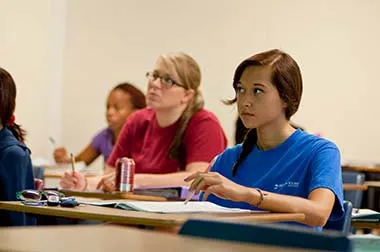
Through a clinical model of practice, Education and Teacher Preparation faculty engage in teacher preparation with a focus on content knowledge expertise, effective teaching strategies, and classroom management. Our faculty are confident that, upon graduation, candidates are poised to meet the challenges of contemporary classrooms. All teacher candidates complete professional education coursework and content-specific coursework alongside structured, supervised field experience in the schools.

The mission of the Department of Natural Sciences at the College of Coastal Georgia is to foster the knowledge and ability to explore the complex and diverse natural world at all levels of organization and to promote the intellectual growth of the liberal arts student within the framework of the scientific perspective.
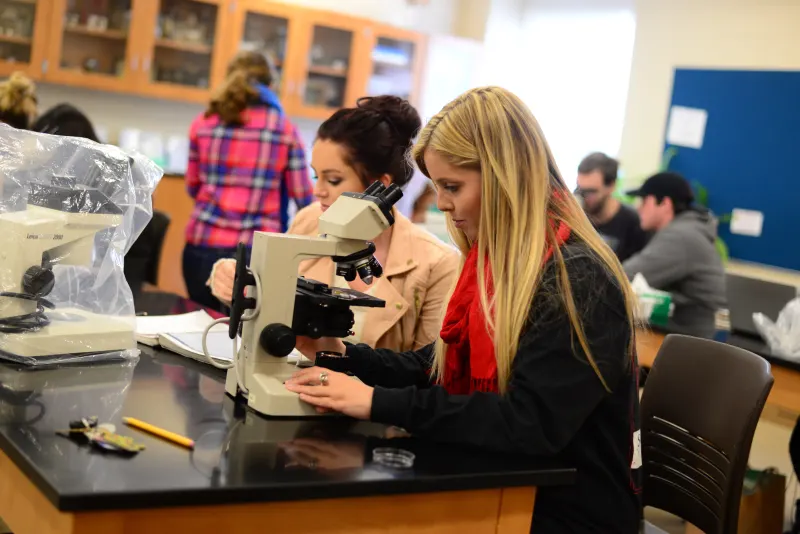
It is the mission of the Department of Social Sciences to promote academic excellence and encourage active learning through rigorous and comprehensive instruction, discipline-specific research, and community engagement. The department emphasizes flexibility of scheduling through the use on on-site, online, distance, and hybrid course delivery while developing skills necessary for meaningful careers and admission to graduate programs.
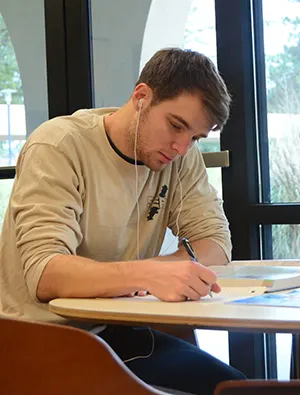
120 semester credit hours for all baccalaureate degrees with at least 21 semester credit hours of upper level courses in the major field, and at least 39 semester credit hours of upper level work overall (30 credits of upper level courses must be completed at Coastal Georgia).
American Studies (BA)
-Communication, Literature, and Media Studies
-History and Political Science
Biological Science (BS)
-Biochemistry
-Coastal Ecology
-Biomedial Science
-Secondary Certification (Biology)
-Integrative Biology
Criminal Justice (BS)
-Cyber Defense
-Homeland Security
-Public Management
Data Science (BS)
-Computational Data Analytics
-Cyber Defense
-Earth Analytics
-Entrepreneurship
-Financial Analytics
-Healthcare Analytics
-Marketing Analytics
Elementary and Special Education (BSED)
Environmental Science (BS)
-Chemistry
-Environmental Studies
-Geology
-Marine Science
-Natural Science
-Sustainability Policy and Management
General Business (BBA)
-Accounting
-Cyber Defense
-Economics
-Entrepreneurship
-Finance
-Financial Technologies
-General Business
-Health Care Administration
-Leadership
-Management
-Marketing
Health Sciences (BS)
-Health Promotion
-Exercise Science
Hospitality, Tourism, and Event Management (BS)
-General Management
-Sports Management
Interdisciplinary Studies (BS)
Mathematics (BS)
-Environmental Modelling
-General Mathematics
-Secondary Teacher Certification
Psychology (BS)
-Psychological Science
-Community and Organizational Leadership
-Human Services
Public Administration (BS)
-Cyber Defense
-Political Science
-Public Management
Workforce Management and Leadership (BS)
-Technical and Industrial
-Healthcare Information Management
-General Business
-Criminal Justice
The Associate of Arts degree (A.A.) and Associate of Science degree (A.S.) prepare students who are planning further study in many disciplines at Coastal Georgia. These degrees consist of 42 hours of the required core curriculum courses and 18 hours of lower level courses related to a bachelor’s degree field of study.
An Academic Pathway is an advising guide to help students prepare for their intended bachelor’s degree major. By following the course of study for either an Associate of Arts or Associate of Science pathway, students will have the required general education courses to move into a four-year bachelor’s program of study. A pathway is not a major and will not be represented on the diploma.
Students should meet with an advisor in COMPASS Career and Academic Advising who can guide them in selecting and planning for an appropriate academic pathway. Students are also encouraged to investigate specific course requirements for the bachelor’s program they are intending to pursue.
The College of Coastal Georgia offers three academic pathways:
Coastal Georgia also offers three Career Associate Degrees that are designed to prepare students for employment upon graduation. These degrees require 60-70 credits, with at least 20 credits of general education courses.
The College’s growth in the area of online learning has grown precipitously within the last few years. In an effort to accommodate diverse student learners, online education is a popular learning platform, not only in terms of convenience and flexibility, but also the opportunity for students to participate in an interactive virtual classroom environment that offers enhanced class discussions.
Bachelor of Applied Science
–Workforce Management and Leadership
Bachelor of Business Administration
–General Business
Bachelor of Science in Public Administration
–Public Management
Bachelor of Science
–Interdisciplinary Studies
Bachelor of Science in Health Sciences
–Health Promotion
Bachelor of Science in Mathematics
–General Mathematics
Bachelor of Science
–RN to BSN
Film and Television Production
Certificate in Cyber Defense
Certificate in Environmental Science
Certificate in the Fundamentals of Coastal Geology
Certificate in Integrated Coastal Geology
Certificate in Scientific Diving
Certificate of Workplace Management
Certificate in Workforce Operations
Wetland Science Certificate
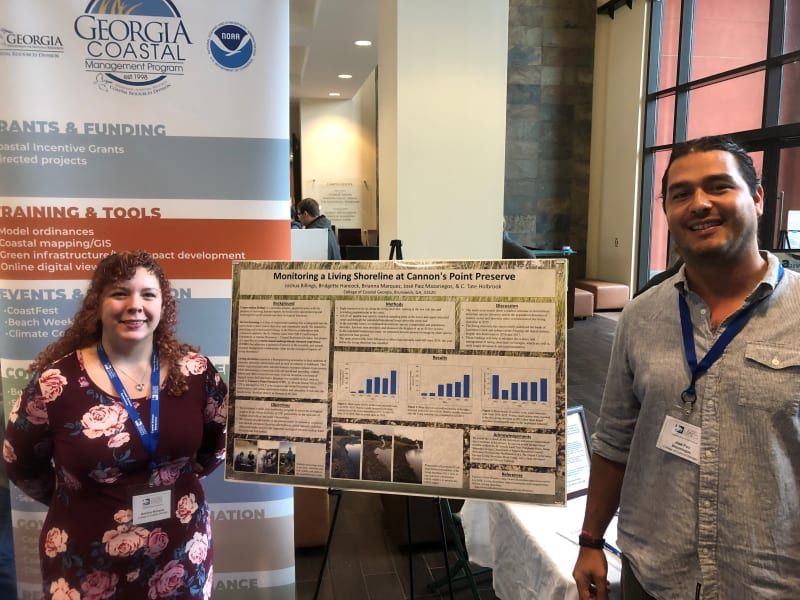
The Coastal Science Symposium brings students, faculty, and community partners together to explore coastal and marine science research applications to society.
The College’s new minor in Diversity and Inclusion is an interdisciplinary program that examines social differences and inequalities related to human differences, including race, gender, sexuality, ethnicity, and disability. Students will be able to apply leadership skills and perspectives acquired in the diversity and inclusion minor to social institutions, civic participation, career development, and organizational cultures in order to promote a just and equitable society.
The College’s new Minor in Sociology prepares students to explain human behavior and to apply sociological perspectives to address current social problems. Sociology courses examine various aspects of social life, including the social construction of identities, social stratification, deviance, the role of media in society, and many other topics.
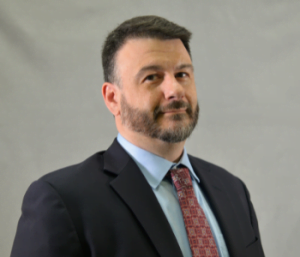
Robert C. Clark is an Associate Professor of English at the College of Coastal Georgia. He earned a BA in English from Wheaton College (IL), MA degrees from Furman University (Secondary English Education) and the University of Georgia (English/Literary Theory), and a Ph.D. in English from the University of Georgia. Clark has published a book, American Literary Minimalism (U of Alabama P, 2014), and his articles have appeared in The Hemingway Review, American Literary Realism, JML: The Journal of Modern Literature, The South Atlantic Review, Amerikastudien / American Studies and Studies in the American Short Story. Additionally, he has a chapter on Raymond Carver’s “A Small, Good Thing” and “Cathedral” in The Handbook of the American Short Story (De Gruyter, 2022) and an article on Octavia E. Butler’s “Bloodchild” forthcoming in Science Fiction Studies. His current project is an exploration of the role of short narratives in memes, videogames, Transpacific anime, and other forms of visual media.
Carla Bluhm received her undergraduate degree in Psychology and minor in History at University of Massachusetts Amherst. She then went on to earn a Masters degree at Teachers College Columbia University and was then encouraged to stay for her Masters of Education, and Masters of Philosophy in Developmental Psychology from Columbia University. After taking a year off to teach at the University of Rhode Island, she returned to NYC to work with her mentor, Professor John Broughton, on theoretical, cultural, and historical psychology and completed her Ph.D. from Columbia University. While working on her Ph.D., she served as a teaching assistant at Columbia for Dr. Herb Terrace of the famed Nim Chimpsky study. She also worked for New Hope Guild, based in Brooklyn, as a psychotherapist for over two years with a geriatric population in a skilled nursing facility.
Dr. Bluhm was awarded Professor of the Year from the College of Coastal Georgia, and thrives in a teaching environment both online and face to face. She has taught for USG eCore for numerous years and values high level and committed teaching in an environment that supports critical and divergent thinking skill development. She teaches classes across the lifespan as well as clinical classes and a course she is developing related to psychology and the natural world. During the Spring semester of 2019, she walked over a 250-mile Camino across Portugal into Santiago, Spain to increase her knowledge and thoughts about the psychology of long walks and the natural world. You can check out her adventure here.
Dr. Bluhm is married and has one daughter who shines bright at Oberlin College.
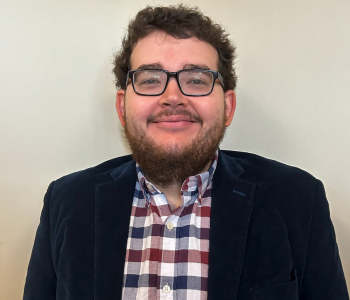
Dr. Cagle joined the faculty of the College of Arts and Sciences at the College of Coastal Georgia in Fall 2023 as Assistant Professor of Political Science. He specializes in American Political Psychology and Survey Methodology. Dr. Cagle holds a Bachelor’s degree in political science and law from the University of Tennessee, as well as an M.A. in political science from the University of Alabama. He completed his PhD at the University of Alabama in May, 2023 under the supervision of Dr. Nick Davis.
Before joining the College, Drew worked in association management for the Midwest Political Science Association from 2020-2023. Dr. Cagle’s scholarly work has been featured in Social Sciences Quarterly and at several major conferences. He is also a frequent contributor to The Brunswick News as well as an Associate Scholar of the Reg Murphy Center for Economic Policy Studies and the Coordinator of the Social Sciences Speaker Series.
Education:
Ph.D., Community Psychology, University of Missouri-Kansas City
M.A., Community Psychology and Social Change, The Pennsylvania State University-Harrisburg
B.S., Psychology, Michigan State University
About: Dr. Culley’s program of research is focused on individual, community, organizational, and institutional responses to environmental hazards. She specializes in citizen participation in environmental decision-making, environmental justice, and the links between individual transformation and larger community and social change processes. In particular, she investigates psychosocial responses to environmental disputes, how citizen participation processes are shaped by power dynamics, and how community psychologists can inform change efforts aimed at the human-caused environmental crises related to global climate change. Dr. Culley has also written extensively about the history and content of the scholarly literature of community psychology, and in particular, its attention to diversity. Her research is informed by theories of social power and empowerment, ecology, feminism, and action research. These related theoretical domains provide the conceptual context for her program of research, philosophy of teaching, and work in the community.
Courses regularly taught:
Introduction to General Psychology
Psychology of Adjustment
Community Psychology
Psychology of Women
Environmental Psychology
Ethics & Professional Issues in Psychology
Program Development & Grant-Writing
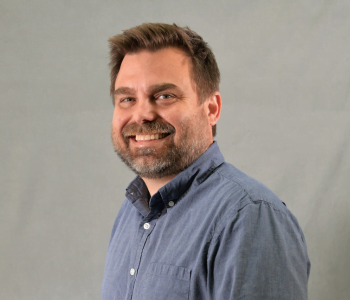
Education:
PhD., Auburn University
MA, University of West Florida
BS, Florida State University
Areas of Interest:
US History since 1865
Latin American History
Public History/Archival Studies
Cold War History
About: Dr. Hector Montford teaches US and Latin American history courses at the College of Coastal Georgia. His research interests include US and Latin American diplomacy in the twentieth Century, US foreign policy and American culture during the Cold War, and Public History. For his dissertation, “The Best of Friends and Neighbors: The USIA and American Public Diplomacy Strategy in Cuba, 1953-1962,” Dr. Montford examined the US government’s public diplomacy program in the years before, during, and just after the Cuban Revolution. As a Public Historian, Dr. Montford has worked, interned, and volunteered in a number of museums and archives. While with these organizations, his job duties included archival administration and public outreach, collections management, exhibit design, and archival processing.
Dr. Morris is a Georgia native and a graduate of the Ph.D. program at Auburn University. His areas of specialty are Early America and Native American culture. His research focuses on Native American women and Scots-Irish fur traders in the colonial backcountry. He is the author of three books, one on the Southeastern Indian fur trade, another on Scots-Irish fur traders, and the third on George Galphin and the transformation of the Georgia-South Carolina backcountry. He is currently working on a manuscript about a Cherokee Rebellion during the American Revolution. He is a long time member of the Georgia Association of Historians and South Carolina Historical Association.
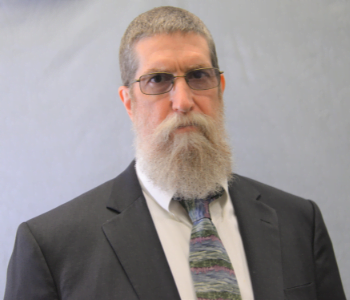
Dr. Pope received his Ph.D. in Biopsychology from the University of Georgia. Prior to that, he received his Masters in General-Experimental Psychology from the College of William and Mary, and his Bachelor’s degree in Psychology from DePauw University. Dr. Pope has been teaching at the college level since 1999. His graduate training is in Biopsychology, and his active research areas are musical cognition, measurement of personality traits, and measurement of socio-political attitudes. At the College of Coastal Georgia, he teaches Introduction to Psychology, Research Methods, Adjustment, Drugs & Behavior, and Personality. He plans to add Motivation and Cross-Cultural to the list next year. He is an active member of the Southeastern Psychological Association (SEPA) and has presented collaborative research with students at the SEPA convention every year since 2005. He enjoys few things in life more than teaching Psychology and working with students on research projects.
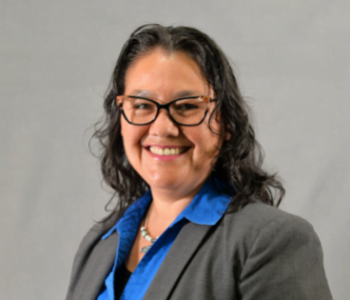
Education: PhD in Developmental Psychology, University of Houston
Course Information
PSYC 1101 – Introduction to General Psychology
PSYC 3000 – Research Methods & Stats
PSYC 3200 – Foundations of Brain and Behavior
PSYC 3320 – Industrial/Organizational Psychology
PSYC 4220 – Cognitive Psychology
Research Interests
Dr. Aurora Ramos Nuñez investigates cognitive processes such as language and bilingualism, memory, and cognitive control, defined as the ability to perform the task at hand while ignoring preponderant distractors, as well as the brain regions related to those processes.
Peer-Reviewed Articles
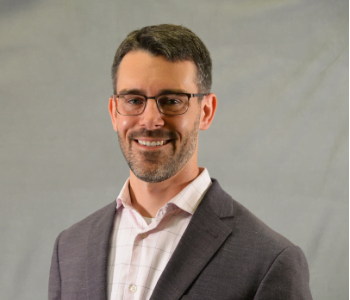
Education
Ph.D., Sociology. University of Virginia, 2015.
M.A., Sociology. University of Virginia, 2009.
B.S., cum laude, Sociology and Criminal Justice. Old Dominion University, 2007.
Recent Scholarship
Scarborough, Roscoe C. 2017. “Risk a Lot to Save a Lot: How Firefighters Decide Whose Life
Matters.” Sociological Forum 32(S1):1073-92.
Scarborough, Roscoe C. 2017. “Making It in a Cover Music Scene: Negotiating Artistic
Identities in a ‘Kmart Level Market.’ ” Sociological Inquiry 87(1):153-78.
Course Information
SOCI 1101 – Introduction to Sociology
SOCI 1160 – Introduction to Social Problems
Faculty Bio
Dr. Scarborough’s research and teaching focuses on culture and inequality. He has published on a broad range of topics, including how people consume “bad TV,” the status system of musicians, and belonging and inequality in the fire service. As an associate scholar of the Reg Murphy Center, he is a regular contributor to the From the Murphy Center column in The Brunswick News.
Ph.D., American History, Florida State University, 2010.
M.A., History, Florida State University, 2005.
B.A., History, Florida International University, 2000.
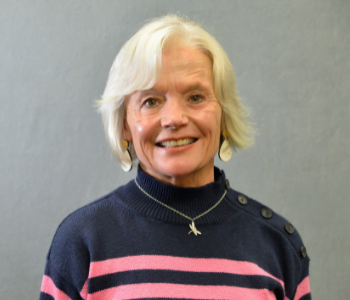
Dr. Geiken received her Doctorate of Education, Curriculum and Instruction from Argosy University. She received her Master of Early Childhood from Armstrong Atlantic, and her Bachelor of Arts, Elementary Education and Special Education from Calvin College. In 2016, Dr. Geiken was awarded the Lillie Moncus Special Education Administrator of the Year. Her professional affiliations include Phi Delta Kappa, Council of Exceptional Children, and the Georgia Educators Association. Before joining the Coastal Georgia faculty, Dr. Geiken worked for the Glynn County School System as Director of Special Education for six years. Prior to that, she was the Special Education Coordinator and Special Education Teacher for the Glynn County School System.
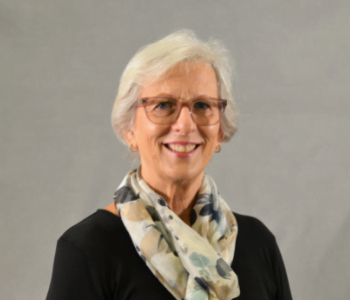
Dr. Lucas received her Doctor of Philosophy, Teacher Education/Mathematics Education from the University of Tennessee in Knoxville. Prior to that, she received her Master of Arts in Teaching, Mathematics Education from East Carolina University, and her Bachelor of Science in Food Science from Delaware Valley University. Dr. Lucas is the recipient of a Level 5 Summative Teacher Performance Evaluation commendation from Knox County Schools, and is a member of the Honor Society of Phi Kappa Phi at the University of Tennessee. Her professional affiliations include the National Council of Teachers of Mathematics (NCTM), Kappa Delta Pi International Honor Society in Education, and Kappa Mu Epsilon Mathematics Honor Society. Before joining the Coastal Georgia faculty in 2018, Dr. Lucas was an Assistant Professor of Teacher Education at Catawba College in North Carolina. Prior to teaching at the college level, her experiences included teaching middle grades and secondary mathematics, as well as coaching secondary mathematics teachers. Now, at Coastal Georgia, Dr. Lucas is supporting teacher candidates as a course instructor and practicum supervisor, and serving the Teacher Preparation program as the assessment coordinator. She enjoys researching, writing, and presenting on topics related to communication to develop conceptual understandings of math and effective usage of educational technologies to differentiate instruction.
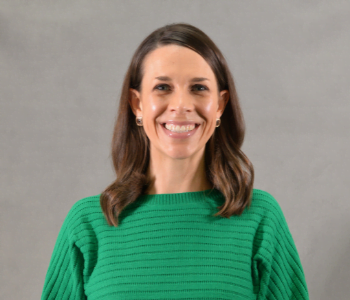
Dr. Morris received her Doctor of Education, Curriculum and Instruction, from Columbus State University. Prior to that, she received her Masters of Education, Reading, Language and Literacy Education with an English for the Speakers of Other Languages (ESOL) concentration from Georgia State University, and her Bachelor of Science in Psychology from Asbury University. Dr. Morris has had numerous leadership roles and has earned awards for both highest gains in student achievement and Teacher of the Year in her K-12 career. Her professional affiliations include the International Literacy Association (ILA), Professors of Literacy and Teacher Education (PLTE), the Georgia Association of Literacy Advocates (GALA), and Phi Delta Kappa. Dr. Morris has been with the Department of Education and Teacher Preparation since 2017, teaching literacy courses and supervising aspiring K-8 teacher candidates. Her reading and writing interests include effective content area literacy instruction and developmentally appropriate practices for K-8 learners. She has almost a decade of classroom experience as a Georgia educator with diverse populations of learners. Her current certifications include K-8 Reading Specialist, Middle Grades English Language Arts, Social Studies and English for Speakers of other languages.
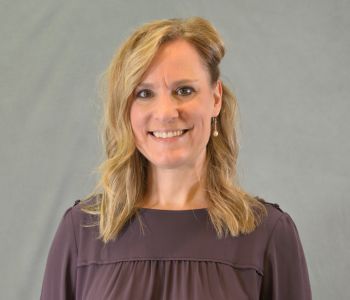
Dr. Sneed earned her Doctor of Philosophy, Curriculum, and Instruction from the University of Virginia. She earned her Master of Science, Science Curriculum and Instruction & Space Science from the University of Colorado-Colorado Springs. She obtained her Bachelor of Science, Physical Sciences (Minor in Mathematics), Secondary Teaching Certification from Colorado State University. Dr. Sneed is a member of the Golden Key International Honors Society and is a National Science Foundation Teaching Scholar. Her professional affiliations include the Association for Supervision and Curriculum Development (ASCD), National Science Teachers Association (NSTA), and the Association for Middle Level Educators (AMLE). Prior to joining the Coastal Georgia faculty, Dr. Sneed served as the Academic Coordinator of the University of Virginia Curry School of Education’s K-12 Gifted Enrichment Programs. She has and continues to partner with school systems and organizations nationally and internationally around initiatives related to curriculum design, classroom assessment, and differentiated instruction in STEM fields. Prior to her experience in teacher education and professional development, Dr. Sneed taught middle and high school science and math in Colorado. Currently, she teaches courses in middle/secondary instructional design, assessment, and differentiated instruction, and mentors teacher candidates in field experiences.
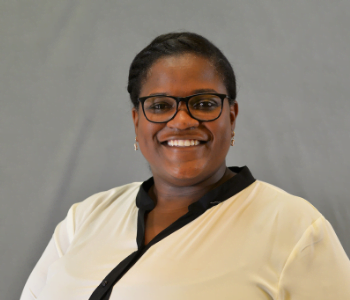
Dr. Averett earned her Ph.D. on Mathematics from the University of Iowa. Her interests include Representation Theory, Mathematics Education, Mentorship, and Student Development.
Jamie received her M.S. in Applied Mathematics from Western Carolina University.
Dr. Lugo earned his Ph.D. in Mathematics from Purdue University. His interests include Data Science, Operator algebras, C* -Algebras, topological groups, and Mathematics Education.
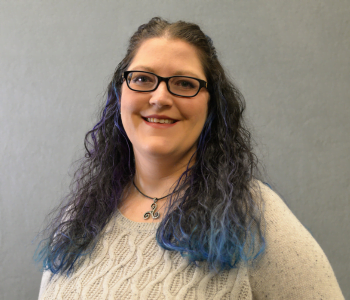
Ms. Noble earned her M.A. in Mathematics Education from the University of Central Arkansas.
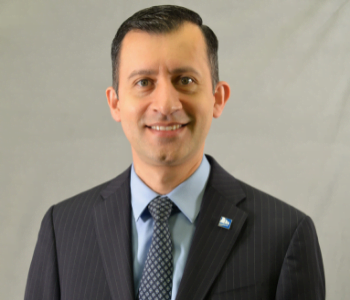
Dr. Vargas earned his Ph.D. Applied Mathematics from Wichita State University. He has an M.S. in Mathematics and a B.S. in Physics. His interests are computational fluid dynamics, mathematical modeling, partial differential equations, numerical analysis, and anything related to scientific computing.
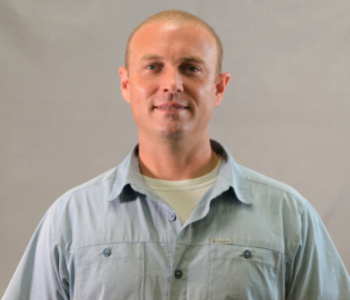
Dr. Yeager earned his Ph.D. in Mathematics from Oklahoma State University. Prior to that, he received both his M.S. in Applied Mathematics and his M.S. in Pure Mathematics from the University of Missouri. His interests include random polynomials, orthogonal polynomials, asymptotic analysis, potential theory, number theory, and mathematics education. Visit Dr. Yeager’s personal website here: https://bit.ly/2OvNcEY
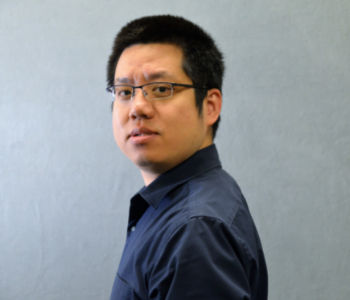
Dr. Zhao has a Ph.D. in Mathematics from the University of Missouri Rolla. His interests include SaddlePoint Approximation, equivalence test, actuarial science, machine learning, and mathematics education.
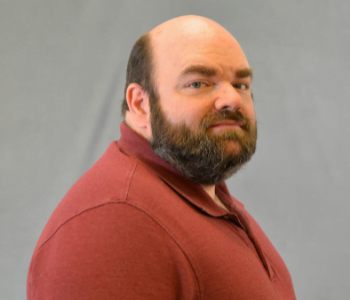
Joshua Clark (MS in Biology) is an alumnus of the College of Coastal Georgia, graduating in 2004 with an Associates of Science. It was during this time that Mr. Clark collaborated with Georgia College of Milledgeville, Georgia to unearth Pleistocene-aged (20,000 years BCE) fossils at a site – later named Clark Quarry – within Brunswick, Georgia. This site contained the remains of giant bison, mammoths, and giant tortoises, among other ancient fauna. After graduating, he transferred to Georgia College in Milledgeville to continue his work in paleontology, where he obtained a Master’s degree in biology. His work focused mainly on the Pleistocene herpetofaunta (reptiles and amphibians) discovered at Clark Quarry, and an understanding of the Pleistocene climate of Coastal Georgia during the last Ice Age. Today, Mr. Clark has returned to his alma mater, the College of Coastal Georgia, where he currently teaches introductory courses within both biology and geology.
James Deemy is a hydrologist and environmental scientist. He has a broad background in biology, ecology, and geology. His research interests focus on assessing the hydrologic connectivity between isolated, ephemeral wetlands and watersheds. He has specifically assessed the water quality and quantity of agricultural storm-based flows that connect wetlands to nearby waters in southwest Georgia. James also has active research in water resources education.
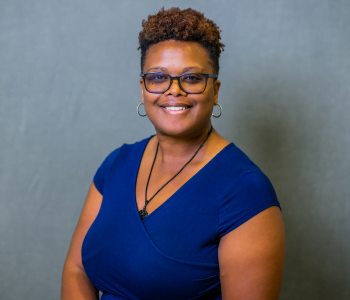
Dr. Edwards earned her Ph.D. and her B.S. from Florida A&M University.
Dr. Gardner grew up in Erie, Pennsylvania. He has a Bachelor’s degree and a Masters degree in Aerospace Engineering from Penn State University, and a Ph.D. in Physical Chemistry from Kent State University. He enjoys reading science fiction and urban fantasy books, going to the movies, and solving diagramless and crostic puzzles. Gardner teaches mostly principles of chemistry for science majors, as well as physical chemistry. His research interests in science focus on applying computational chemistry to topics in climate science. He is currently developing two specific projects. The first one is how ions in the seawater affect the hydration of carbon dioxide. This is connected to the large issue of ocean acidification. The second project is how carbon dioxide in the atmosphere might affect the hydrogen-bonding in complexes of atmospherically-important acids. This is connected to the larger issue of acid rain. The College has a program called “Gaussian 16,” which is research-level software that is capable of carrying out ab initio and semi-empirical calculations on a wide variety of systems.
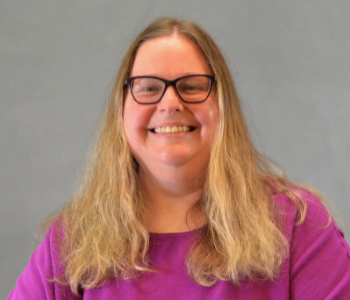
Dr. Jennifer Hatchel earned her Ph.D. in Microbiology from Miami University, Oxford, OH. Prior to that, she received her Masters in Biology from Austin Peay State University, Clarksville, TN, and her Bachelor’s in Biology at the University of Tennessee-Martin, where she graduated magna cum laude. Dr. Hatchel has taught Principles of Biology I and II with labs, Human Anatomy & Physiology I and II with labs, Foundations of Microbiology with lab, Pathophysiology, Immunology, Microbial Diversity, and Topics in Biological Sciences (Infectious Diseases, Environmental Microbiology). Her research interests include the antimicrobial properties of Manuka honey. She has supervised independent research with undergraduate students investigating the effects of Manuka honey on Salmonella enteritidis, and recently, a student started investigating the effects of Manuka honey combined with lemon and ethanol against Streptococcus pyogenes. Dr. Hatchel hopes to continue these experiments in the future. She is also interested in looking at microbial populations in local rivers and seeing how that affects water quality. One student was working on preliminary experiments at Crooked River State Park, but they were only able to collect a few sets of data. Dr. Hatchel hopes to continue this work in the future as well.
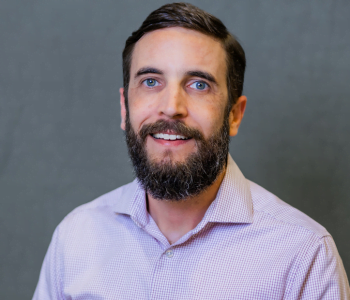
Dr. Holbrook coordinates the Biological Sciences degree program and teaches a variety of courses in biology (e.g., Principles of Biology, Ecology, Conservation Biology, Animal Behavior, Invertebrate Natural History). He is committed to providing high-impact experiential learning opportunities to students via undergraduate research, service-learning, and internships, drawing from his expertise in ecology and evolutionary biology, and collaborating with regional partners in conservation. He currently serves on the University System of Georgia Faculty Council and the Cannon’s Point Preserve Education Task Force, and he previously chaired Coastal Georgia’s Faculty Senate, among many other service activities. Dr. Holbrook received a B.S. in Biology from the University of North Carolina at Asheville, and a Ph.D. in Biology from Arizona State University.
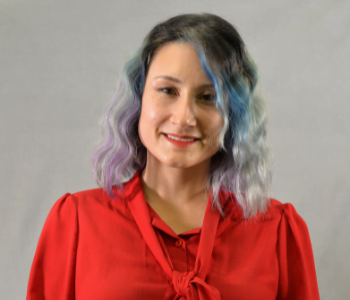
Dr. Knight’s expertise lies in the boundary of chemistry and biology. Her graduate research involved RNA biochemistry, specifically riboswitches. In graduate school, she discovered a passion for education and finding innovative/interactive ways to educate students and the community. She grew up in a rural Georgia community, and spent all of her formative and adult years in the Georgia education system, completing her BS. in Chemistry with a concentration in Biochemistry from the University of West Georgia, then completing her Ph.D. in Biomolecular Chemistry from Emory University. Her interdisciplinary academic training allows her to directly demonstrate to students how various branches of science come together to affect the world around (and within) us.
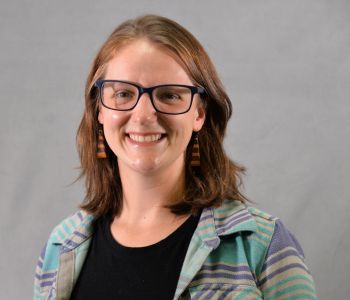
Robin McLachlan is a broadly-trained geologist interested in how the shapes of coastal environments are intimately linked to human development, and vice versa. Specifically, she studies sediment transport from source to sink, mountains to deep sea, focusing on the interaction between sediment and hydrodynamics in the fluvial-marine transition zone. She applies the same scientific rigor and inquiry to her role as an educator and communicator. Her teaching strategies constructively align scientific content and communication skills to best achieve student learning goals and career success.
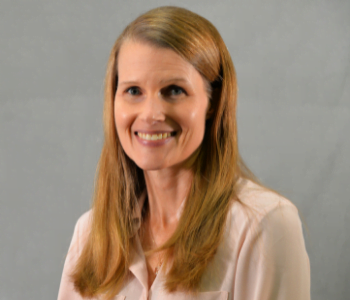
Dr. Holly Nance earned her PhD in Biological Sciences from Clemson University, focusing on population genetics and the application of these data for conservation management. Since teaching at Coastal for the past five years, she continue to mentor undergraduate students applying molecular tools to study epigenetics, eDNA, and seafood mislabeling. She encourages her research students to develop their own questions and projects related to conservation genetics. More recently, Nance mentored students in a bioinformatics course as part of the SEA PHAGES (Science Education Alliance-Phage Hunters Advancing Genomics and Evolutionary Science) Program. In this course, students annotate the genome of a novel bacteriophage discovered by Coastal students, determining the position and function of purported genes. Nance also teaches Cell and Molecular Biology, Genetics and introductory biology courses. Her goal is to help students learn practical skills they can apply in any molecular biology lab, and gain experience with genomic and proteomic software and databases.
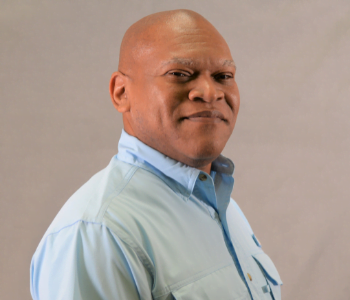
Dr. Ernest Pascoe teaches Organic Chemistry I and II. In addition, he teaches Survey of Chemistry, Principles of Chemistry, and Global Issues, depending on the semester. He received his Bachelor of Science degree from the University of the West Indies in 1994 with a double major in chemistry and biochemistry. Dr. Pascoe’s Ph.D. was obtained at Clark Atlanta University in 2003. The focus of his work was the study of the properties of high temperature polyimides and their decomposition process. Dr. Pascoe’s experience centered around synthesizing organic molecules and using organic monomers to synthesize polyimides. From the standpoint of the classroom, Dr. Pascoe has an interest in studying factors, such as specific prerequisite knowledge, that influence the performance of students in Organic Chemistry. He is also keen on exploring and utilizing different support tools to help in the delivery of chemistry content.

Dr. Robertson is a botanist who conducts research in plant ecology, with primary interests in phenology and plant distribution responses to climate change. She teaches both lower- and upper-division courses in biology with a focus on the botanical courses. She also mentors Coastal Ecology students, serves as the curator of the College of Coastal Georgia’s herbarium and greenhouse, and is an advising scientist for TIDES (Texas Integrated Diving & Ecological Studies) Laboratory, which is a multi-institutional undergraduate research program that focuses on student-driven marine research projects on the Mesoamerican Barrier Reef System in the Caribbean. Dr. Robertson received her B.S. in biology from Angelo State University, her M.S. in biology/plant ecology from Sul Ross State University, and her Ph.D. in biology/plant physiology from Texas Tech University.
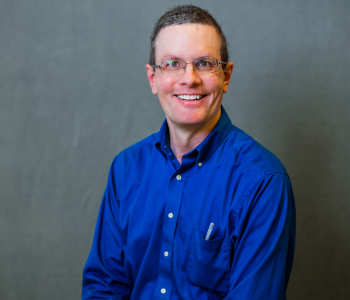
Dr. Stasek teaches a variety of courses including Zoology, Vertebrate Natural History, Ecology Field Studies, and Parasitology. He mentors Coastal Ecology students and conducts research in the fields of zoology, natural history, fisheries, and biodiversity. He has collaborated with the University of Georgia Marine Extension Office, the Georgia Department of Natural Resources, the Georgia Sea Turtle Center, and the Jekyll Island Authority. Dr. Stasek received his B.S. in Biology from Baldwin-Wallace College in Berea, OH and M.S. and Ph.D. from Miami University in Oxford, OH.
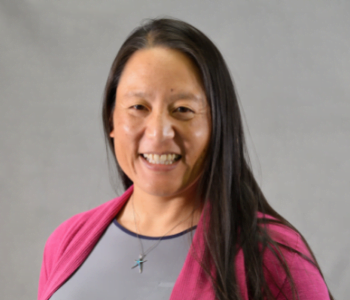
Kimberly Takagi is a marine environmental scientist and educator. She is particularly interested in coastal ecosystem dynamics and the role of marine invertebrates (crabs, snails, oysters, mussels, etc.) in carbon and nutrient biogeochemical cycling. In her courses, she strives to facilitate learning by immersing students in field and laboratory research approaches. She strives to develop students’ abilities to critically think about environmental processes through student-collected data and course-based research projects.
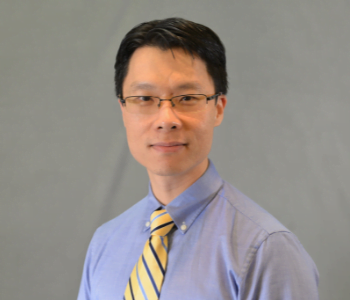
Hello everyone! My name is Dr. Dantera Tangpisuthipongsa. I usually go by Professor Dan or Dr. Dan. I graduated with a Bachelor of Science in Neuroscience and Behavioral Biology from Emory University, and later a Doctorate of Medicine from Medical College of Georgia. After a year of internship, I found myself enjoying teaching and training future healthcare professionals to be my new calling. I spent my free time catching up on my sleep, tending to my garden, and binging on streaming services.
I mainly teach Anatomy and Physiology I & II along with their lab component, and Pathophysiology, which I highly recommend to any student who wants to get a head start in nursing or medical school. My academic interest focuses on biomedical sciences and learning activities that provide a strong foundation for students who are interested in pursuing a healthcare career.
This website uses cookies. Find out more in our Privacy Notice: https://www.ccga.edu/privacy/. For Data Service requests, fill out this form.